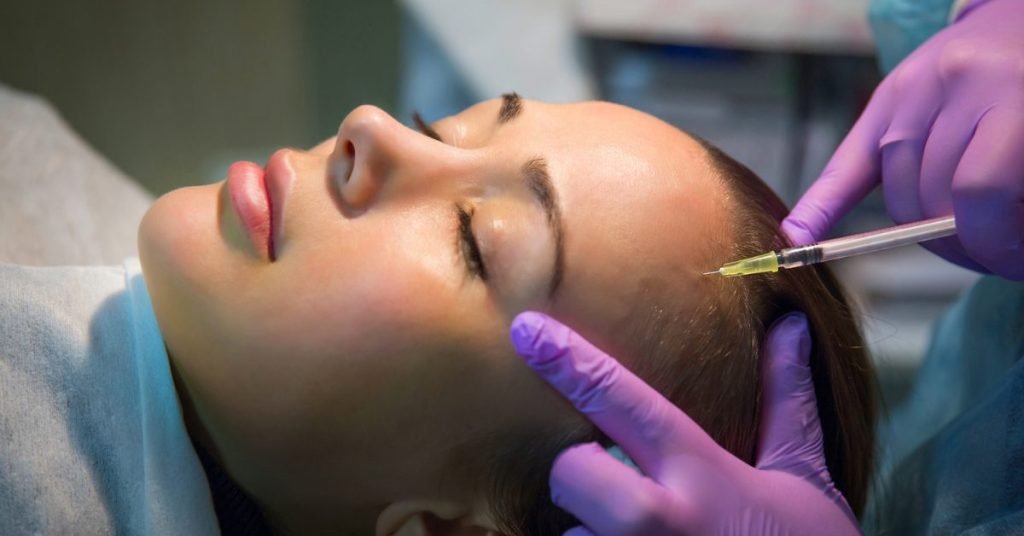
Are you considering getting Botox injections? From avoiding injection sites, pre-treatment protocols, and which areas of the face are best suited for various cosmetic injections – I’ve got it all just for you! I educate my clients on how to get the best results from these treatments so they can look their absolute best in no time.
If you’re considering getting Botox injections, there are a few things you should know before you go under the needle. Botox is a popular cosmetic treatment that can help reduce the appearance of fine lines and wrinkles, but like other cosmetic treatments it’s not without its risks. To ensure that you get the best results from your Botox treatment and avoid any potential complications, it’s important to be aware of the following things to avoid before getting Botox injections.
It’s important to avoid certain medications before getting Botox injections. Prescription blood thinners and blood-thinning medications such as St. John’s Wort, ginkgo biloba, fish oil supplements, and flaxseed oil should be avoided in the days leading up to your treatment. These supplements may increase the risk of bleeding or bruising at the injection site, which can lead to poor results or even complications. Additionally, it’s important to avoid any other medical conditions that may affect blood flow, such as high blood pressure, or history of cold sores.
Don’t let any barriers stand between you and your perfect skin! With our comprehensive list of what not top do before your Botox appointment, get ready for smoother-looking skin without pesky wrinkles or lines. We’ll make sure that your experience is both safe and effective – no unnecessary risks involved!
5 Things To Avoid Before Having Botox Injections |
| 1. Medications |
| 2. Dermal Fillers |
| 3. Foods To Avoid |
| 4. Tanning and Intense Sun Exposure |
| 5. Caffeine and Energy Drinks |
Medications:
Before receiving Botox injections, it is important to inform your healthcare provider of any medications that you are currently taking. Certain medications can increase the risk of bleeding and bruising, which can lead to complications during the Botox injection procedure. Medications that can increase the risk of bleeding include blood thinners such as warfarin (Coumadin), clopidogrel (Plavix), and aspirin. If you are taking any of these medications, your healthcare provider may advise you to stop taking them for a certain period of time before the procedure.
Additionally, certain medications can also affect the effectiveness of Botox injections. Medications that interact with nerve impulses, such as aminoglycoside antibiotics, can interfere with the way that Botox works. If you are taking any of these medications, your healthcare provider may advise you to avoid Botox injections until you have finished the course of treatment or until the medication has been discontinued.
Dermal Fillers:
It is a good idea to avoid receiving filler treatments like dermal fillers before having Botox injections because Botox and dermal fillers work in different ways and are typically used to treat different types of wrinkles and facial lines. Botox is a neuromodulator that temporarily paralyzes the muscles that cause wrinkles, while dermal fillers are used to add volume and fullness to the skin.
If dermal fillers are used before Botox, it can make it more difficult to accurately assess the muscle activity in the treatment area and determine the appropriate dosage of Botox needed. Additionally, getting Botox injections after dermal fillers can cause the fillers to move around, which can result in an unnatural or uneven appearance. It’s always better to consult with a professional before getting any treatment.
Foods To Avoid:
Before receiving Botox injections, it is recommended to avoid certain types of food that can increase the risk of bleeding and bruising. Foods that are high in Vitamin K, such as leafy greens, broccoli, and Brussels sprouts, can interfere with the blood’s ability to clot, which can increase the risk of bleeding during the injection process. It’s recommended to avoid consuming large amounts of these foods for at least a week before the procedure.
Another group of food to be avoided are the ones that contain high levels of histamine. Histamine is a chemical that is naturally present in some foods, and it can cause inflammation and increase blood flow to the area. Histamine-rich foods include fermented foods, aged cheese, smoked meats, and certain types of fish, such as tuna and mackerel. Consuming these foods can cause the blood vessels to dilate, which can increase the risk of bruising during the injection process. It’s recommended to avoid these foods for at least 24 hours before the procedure.
Tanning and Intense Sun Exposure:
It is important to avoid tanning and intense sun exposure before getting Botox injections because UV exposure can increase the risk of bruising, swelling and redness after the injections. This is because UV rays can increase blood flow to the skin and increase the risk of bleeding and swelling. In addition, tanning can cause the skin to be more sensitive, making it more likely to experience discomfort and side effects after Botox injections.
Furthermore, tanning and intense sun exposure can also cause the Botox to wear off more quickly, reducing the duration of the effects. Botox works by blocking the nerve signals that cause muscle contractions, and exposing the treated area to UV rays can disrupt the nerve signals and cause the Botox to wear off more quickly. This can result in the need for more frequent injections and a less effective outcome. By avoiding tanning and intense sun exposure before and after Botox injections, you can help to ensure that the effects last as long as possible and minimize the risk of side effects and complications.
Caffeine and Energy Drinks:
Caffeine and energy drinks should be avoided before having botox injections as they can increase blood flow and blood pressure. This increased blood flow can result in increased bruising and swelling at the injection site, making it difficult to see the effects of the botox and delaying the healing process. Furthermore, caffeine is a stimulant that can cause the muscle to contract, which could interfere with the ability of the botox to relax the muscle and achieve the desired results.
In addition, caffeine and energy drinks can cause dehydration, which can also increase the risk of bruising and swelling after the injections. Dehydrated skin is more prone to bruising and swelling, and it is important to stay hydrated before and after the injections to reduce these risks. The increased blood pressure caused by caffeine and energy drinks can also increase the risk of complications, such as headaches and other side effects associated with botox injections. To ensure the best possible results, it is recommended to avoid caffeine and energy drinks at least 24 hours before and after the injections.
Conclusion:
Keep in mind that the best way to ensure good results is to choose an experienced injector and have a consultation with them to discuss your individual needs, treatment plan, and recovery period. American Society of Plastic Surgeons recommends to avoid hair removal creams, glycolic acid, green tea and high sugar foods on the day of the treatment. Also, avoid taking any anti-viral medication in the days leading up to your treatment.
